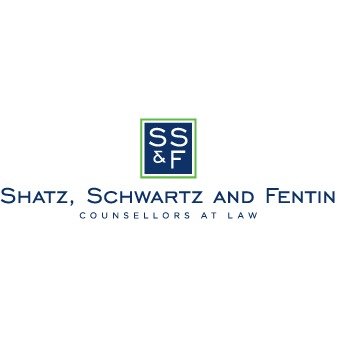Best Ethics and Professional Responsibility Lawyers in Massachusetts
Share your needs with us, get contacted by law firms.
Free. Takes 2 min.
Or refine your search by selecting a city:
List of the best lawyers in Massachusetts, United States
About Ethics and Professional Responsibility Law in Massachusetts, United States
Ethics and professional responsibility law in Massachusetts governs the conduct and standards of lawyers, judges, and other professionals practicing within the state. These laws are designed to ensure that individuals and organizations in the legal profession uphold principles such as honesty, confidentiality, fairness, and integrity. In Massachusetts, ethical standards for attorneys are primarily defined by the Massachusetts Rules of Professional Conduct, which outline the duties lawyers owe to their clients, the courts, and the broader legal system. These rules help protect the interests of the public and maintain trust in the legal profession.
Why You May Need a Lawyer
There are many situations where individuals, attorneys, or organizations may need legal guidance in the area of ethics and professional responsibility. Some common scenarios include:
- Facing allegations of unethical or unprofessional behavior as a lawyer, paralegal, or firm employee
- Responding to a complaint filed with the Board of Bar Overseers
- Seeking advice on how to handle conflicts of interest
- Understanding your obligations regarding client confidentiality and privilege
- Determining whether to report another attorney’s misconduct
- Dealing with issues related to attorney discipline, suspension, or disbarment
- Needing guidance on advertising or fee arrangements as a legal professional
- Informing clients about potential ethical pitfalls in their interactions with attorneys
- Law firms looking for training on ethical compliance and best practices
- Addressing questions about unauthorized practice of law or multijurisdictional practice
Local Laws Overview
Key laws and regulations that impact ethics and professional responsibility in Massachusetts include:
- Massachusetts Rules of Professional Conduct: These rules serve as the primary framework guiding attorney conduct within the state. They address client relationships, confidentiality, conflicts of interest, duties to the court, advertising, and public communication, among other topics.
- The Office of the Bar Counsel: The agency that investigates complaints against lawyers related to ethical violations or unprofessional behavior.
- Board of Bar Overseers (BBO): Oversees the bar admissions process and plays a key role in imposing disciplinary measures when rules are violated.
- Massachusetts General Laws: Additional statutory provisions can also apply in specific areas, such as regulations about unauthorized practice of law or judicial conduct.
- Supreme Judicial Court Orders: The SJC issues orders and opinions interpreting the rules and setting disciplinary precedents in Massachusetts.
Frequently Asked Questions
What is considered an ethical violation for an attorney in Massachusetts?
An ethical violation occurs when a lawyer fails to comply with the Massachusetts Rules of Professional Conduct. Examples include conflicts of interest, breach of confidentiality, mismanagement of client funds, dishonesty, criminal acts, or failure to communicate with clients.
How can I file a complaint against a lawyer in Massachusetts?
Complaints against attorneys can be filed with the Office of the Bar Counsel, which investigates allegations and can recommend disciplinary action to the Board of Bar Overseers. The process usually requires a written statement outlining the alleged misconduct.
What happens after a complaint is filed with the Bar Counsel?
The Bar Counsel reviews the complaint, may gather further information, and can dismiss the complaint or formally investigate. If warranted, the case may proceed to disciplinary proceedings before the Board of Bar Overseers or to the Supreme Judicial Court.
Are attorney ethics rules in Massachusetts the same as in other states?
While there are similarities, Massachusetts has its own specific Rules of Professional Conduct. Attorneys practicing in more than one state must comply with the rules of each state where they are licensed.
Can a lawyer represent a client if there is a conflict of interest?
Generally, no. The rules prohibit representation where a conflict of interest exists unless there is informed written consent from all affected parties and it does not adversely affect the lawyer’s ability to represent the client.
What are the consequences for violating attorney ethics rules?
Consequences can range from private reprimand and public censure to suspension or disbarment, depending on the severity and nature of the violation.
Is information I share with my attorney confidential?
Yes. Attorneys in Massachusetts are required to keep client information confidential, subject to certain exceptions such as preventing a crime or complying with court orders.
How are attorney fees regulated in Massachusetts?
Attorneys must charge reasonable fees and provide clear written agreements, especially for contingent fee arrangements. Misrepresentation or failure to disclose fees may constitute an ethical violation.
Can lawyers advertise their services in Massachusetts?
Yes, but there are specific rules governing advertising to ensure that information is truthful and not misleading. Certain forms of solicitation may be prohibited.
What should I do if I was accused of unethical conduct but disagree with the allegations?
You should consult with an attorney who practices professional responsibility law. They can help present your side of the story, ensure your rights are protected during the investigation, and help navigate the disciplinary process.
Additional Resources
If you need more information or guidance regarding ethics and professional responsibility in Massachusetts, consider contacting these resources:
- Massachusetts Board of Bar Overseers
- Office of the Bar Counsel
- Massachusetts Supreme Judicial Court
- Massachusetts Bar Association Ethics Hotline
- Local law schools and legal aid clinics
- American Bar Association Center for Professional Responsibility
Next Steps
If you have concerns about professional conduct or need legal advice related to ethics and professional responsibility in Massachusetts, consider taking the following steps:
- Document your concerns and gather any evidence or relevant communications
- Contact the Board of Bar Overseers or the Office of the Bar Counsel to discuss your situation or file a complaint
- Consult a qualified attorney with experience in professional responsibility or legal ethics for personalized advice
- Review the Massachusetts Rules of Professional Conduct to better understand your rights and obligations
- Take prompt action, as there may be deadlines or time limits for certain proceedings
Do not hesitate to seek professional guidance. Ensuring ethical conduct protects your personal interests and promotes trust in the legal system.
Lawzana helps you find the best lawyers and law firms in Massachusetts through a curated and pre-screened list of qualified legal professionals. Our platform offers rankings and detailed profiles of attorneys and law firms, allowing you to compare based on practice areas, including Ethics and Professional Responsibility, experience, and client feedback.
Each profile includes a description of the firm's areas of practice, client reviews, team members and partners, year of establishment, spoken languages, office locations, contact information, social media presence, and any published articles or resources. Most firms on our platform speak English and are experienced in both local and international legal matters.
Get a quote from top-rated law firms in Massachusetts, United States — quickly, securely, and without unnecessary hassle.
Disclaimer:
The information provided on this page is for general informational purposes only and does not constitute legal advice. While we strive to ensure the accuracy and relevance of the content, legal information may change over time, and interpretations of the law can vary. You should always consult with a qualified legal professional for advice specific to your situation.
We disclaim all liability for actions taken or not taken based on the content of this page. If you believe any information is incorrect or outdated, please contact us, and we will review and update it where appropriate.
Browse ethics and professional responsibility law firms by city in Massachusetts
Refine your search by selecting a city.











